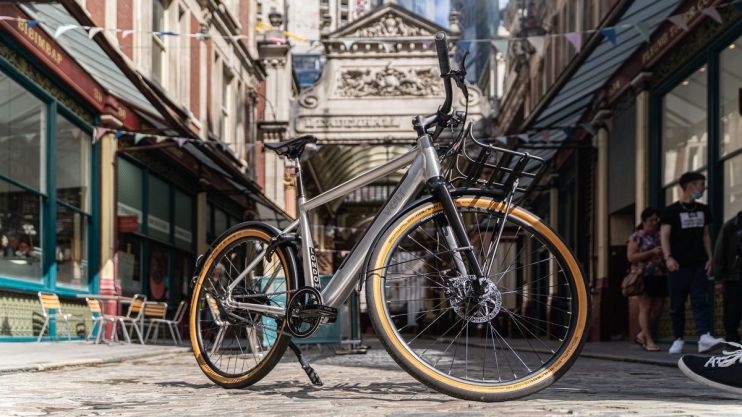
E-bikes as a means for change

With budgets being squeezed tight, the tube becoming ever more crowded and unreliable, and gym membership prices continuing to rise, there has never been a better time to join the e-bike revolution.
The renewed drive to bring workers back into the city has pushed London’s previously stretched public transport facilities beyond comfortable capacity, with crowding on trains, buses, and the tube, now commonplace. Commuter struggles are further exacerbated by the persistent disruption, delays, and cancellations that have become endemic to the UK’s public transport infrastructure. This doesn’t even count the days when we can’t use the rail network due to strike action, which is becoming a regular feature these days. Whilst some have sought to avoid these struggles by working primarily from home, most jobs still involve a level of commuting and many have seen no choice but to resign themselves to expensive, inconvenient, and uncomfortable transport options.
Cycling is an ideal alternative mode of transport for commuters, with riders free from the stress of strikes, restrictive timetables or being crushed against strangers. Unfortunately, potential riders are often hesitant to cover long inter-city commutes due to limitations such as the fitness requirements of cycling or concerns over the availability of showering facilities at work.
Enter the e-bike, a perfect alternative which can relieve riders of the physical burden of long rides and ensure they arrive well-kept. E-bikes present themselves as the solution to the myriad of physical limitations inherent to cycling. By utilising an e-bike to commute, riders can access the numerous physical and mental health benefits of cycling, such as improved cardiovascular and joint health, with the confidence that should they need it, the bike’s motor will provide them assistance.
VOLT Metro Folding ebike ideal for commuters:
Through ownership of an e-bike, riders also have access to a reliable and practical platform for exercise that isn’t bound by class times, opening hours, or expensive membership fees. Lockdown drove market consolidation across gyms, health centres, and fitness studios and, with prices continuing to rise due to inflation and rising business costs, these facilities are becoming increasingly more likely to be both overcrowded and expensive.
Furthermore, the mental and physical benefits of e-bikes are complemented by the clear financial benefits of ownership. With the public necessarily becoming increasingly more fiscally aware, the potential to significantly reduce expensive public transport costs offers a welcome saving. And with the added exercise benefit of e-bikes expensive gym memberships can also be cut.
VOLT’s interest-free finance schemes are supplemented by the government’s well-established tax-free cycle to work scheme enabling would be riders to make the move to electric transport with minimal financial outlay. The comparative saving of an e-bike clearly shines through when directly compared with the cost of gyms and public transport. VOLT offer award winning bikes, like the London, for as little as £69 per month, compared to a generous estimate of a £40 monthly gym membership and £60 spent a month commuting it’s clear which is cheaper.
The physical and financial benefits of e-bikes are considerable and this piece is not even touching on the multitude of sustainable benefits e-bikes bring for those who replace short car or bus journeys with an e-bike. At VOLT we believe that e-bikes are means for change, they offer a sustainable, affordable and healthy solution to many of the dilemmas facing today’s commuters. We’re excited to be at the forefront of this change and cannot wait to see what the future holds for the sustainable transport industry.